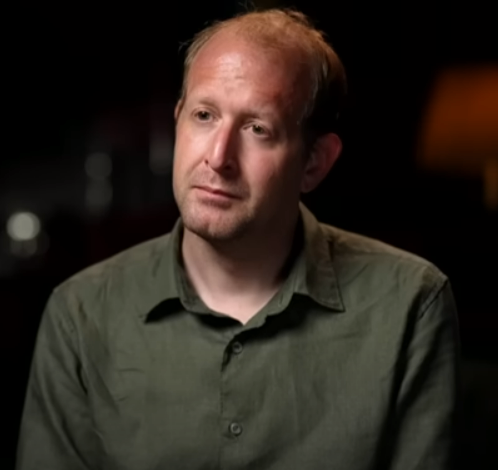Study options
- Starting in
- September 2025
- Location
- Whitechapel
- Fees
- Home: £12,250
Overseas: £27,500
EU/EEA/Swiss students
What you'll study
This MSc will give you a summary of forensic psychology and mental health care. We offer you a distinctive psychosocial focus, a key component of current Ministry of Justice and Department of Health Policy. This approach helps you to reflect on your own experiences and practice in a way that develops your skills as a clinician, researcher or leader in the field, as well as providing a framework for safe and therapeutic work with offenders.
There will also be the opportunity to apply your in-class learning in an optional placement within a forensic setting. Through this you would learn to work as part of a multidisciplinary team (MDT) within a forensic setting, and how to work in partnership with other organisations and pathways relevant to forensic mental health, such as the criminal justice system, probation services and local authorities. Students applying for placements will be required to undergo a DBS check, which is subject to a fee.
You’ll produce an original thesis, which can be oriented towards clinical or research knowledge. We’ll encourage you to publish and disseminate this work.
This programme is accredited by the British Psychological Society
Additional costs
Students on this course may need to pay for travel to placements.
Structure
- Five compulsory modules
- 10,000-15,000-word dissertation
Compulsory/Core modules
In this module, students will work on a piece of independently produced research relevant to forensic mental health. Students will be assisted in topic choice and guided through the process by a personal supervisor but will be expected to collect data themselves, or organise access to it, and write the thesis independently.
This module provides an overview of the theory, practice and evidence base for forensic mental health services in the UK and internationally. It provides a focus on the practices of violence prevention, risk assessment and management, as well as legal frameworks and the role of different professionals with the forensic mental health system.
Recent government policy acknowledges that professionals from criminal justice, mental health and third sector agencies are expected to work with personality-disordered offenders. These individuals¿ complex emotional, inter-personal, behavioural and social difficulties can result in great personal distress, and sometimes a significant risk of harm, to themselves and/or those around them. In this module, students will be developing a better understanding of the interpersonal, team and organisational dynamics that can help or hinder this work.
This module equips students with knowledge of practical application of theoretical knowledge bases related to investigative and legal processes within the discipline of Forensic Psychology and Forensic Mental Health. The contribution of Forensic Psychology to the English Legal System will be introduced prior to students reviewing involvement of related theory and practice in the investigative system. Theory and research are drawn from a number of related areas, including the link between forensic psychology and: policing; interrogative interviewing; working with witnesses; eyewitness testimony; behavioural investigation, and offender crime scene behaviour.
This module equips students with knowledge of core skills employed by Forensic Psychology and Mental Health professionals in their workplace. The module maps out both classic and contemporary work in these settings and relates theory and research to practice with a particular focus on risk assessment. Teaching will review the evidence base relating to risk assessment in addition to covering such topics as engaging with patients, and administration and interpretation of psychometric tests. Participants will be required to apply learning to practical exercises, with the use of case examples to assist in the development of risk assessment and formulation skills. The module will also notionally include a placement within a clinical forensic psychology/mental health service, or a service allied to forensics (e.g. a Community Rehabilitation Company or the National Offender Management Service). However this will be optional, and will not be credit bearing. If students wish to undertake a placement they will be required to submit an application, making suggestions of their choice of placements from a list of collaborating NHS Trusts or other providers (e.g. private providers; NOMS). Placements will be allocated by the Placement Organiser.
This 15-credit module provides students with advanced-level training in research techniques appropriate for postgraduate research projects. It includes lectures on key research principles, such as research methodology; writing up research; and conducting ethical research projects, as well as practical workshops focused on developing skills in data analysis.
This module provides students with essential knowledge and skills about Applied Research Methods. The general aim is to equip students with transferable skills that can be either used towards completing an empirical project or conducting a systematic review.
Assessment
- 67% Modules
- 33% Dissertation
You’ll be assessed by coursework, oral assessments and written exams. Your dissertation forms your final assessment.
Dissertation
You will also be assessed on a supervised 10,000-15,000-word dissertation. Recent titles include:
- The relationship between narcissism and perceptions of sexual violence: a comparison between male undergraduates and male youth offenders
- An exploration of mental health and radicalisation in Bangladeshi and Pakistani populations
- Do adverse childhood factors predict recidivism in female offenders?
- The relationship between borderline personality disorder, childhood victimisation, and offending in females
Teaching
You’ll be taught through a mix of formal lectures and small group seminars. The seminars may involve student presentations, group exercise and role-play.
We take pride in the close and friendly working relationship we have with our students. You’ll be assigned an Academic Adviser, who will guide you in both academic and pastoral matters throughout your time at Queen Mary.
If you want to study part-time, the pathway is designed to fit with the requirements of professionals, including psychiatry trainees already working in forensic psychiatric or comparable services.
You’ll complete core clinical and theoretical learning modules in your first year of study, then finish your research and dissertation in your second. You’ll be encouraged to identify potential dissertation topics in your first year of study, but we won’t expect you to devote a significant amount of time to that module in your first year.

—The range of experienced lecturers, and the unique approach taken to teaching the course has furthered my learning beyond my expectations. The realisation that I wanted to go further in forensic mental health strengthened with every class and helped me understand more about myself too.
Gauri Milind Kelkar, Forensic Mental Health MSc, 2019
Where you'll learn
Facilities
- Access to Queen Mary’s comprehensive libraries, including the Postgraduate Reading Room
- Access to the large medical and dental archives at the Royal London and at Barts
- Mentors for non-programme related support, including careers advice
Campus
You’ll be based at our Whitechapel campus, the main home of Queen Mary University of London's Faculty of Medicine and Dentistry, close to The Royal London Hospital. Whitechapel is a vibrant area, famous for its street market, variety of curry houses and the Whitechapel Gallery. The campus has its own library, state-of-the-art labs at the Blizard Institute and a Students Union with a cafe, bar, computers and bookshop. You can also use all the facilities at the Mile End campus, which is ten minutes up the road.
Queen Mary University of London's Faculty of Medicine and Dentistry's fantastic locations in both east and central London mean that you will develop your clinical skills and knowledge within a diverse local community.
We’re proud to work closely with linked NHS hospital trusts including Barts Health, Homerton, Newham, Whipps Cross and Queens’ (Romford).
We bring research, teaching and practice together, to create an exceptionally wide-ranging, inspiring clinical environment in which you'll study.
About the Institute
Wolfson Institute of Population Health
This course is based at the Wolfson Institute of Population Health, which delivers internationally recognised research and teaching in population health. The Wolfson Institute is a part of Queen Mary University of London’s faculty of medicine and dentistry.
The work of our researchers and educators has had a significant impact on lives across the world. We provide integrated teaching and training opportunities delivered by leaders in the field. By sharing knowledge and pushing the boundaries of research, we will continue to advance population health and preventive medicine on a global scale.
Queen Mary is a member of the Russell Group of leading research universities in the UK and the Faculty of Medicine and Dentistry proudly holds an Athena Swan Gold Award in recognition of our commitment to gender equality.
Career paths
This programme develops the core clinical skills you’ll need to work in forensic psychology and mental health in the UK and overseas.
It’s ideal if you are training to be a psychologist or psychiatrist and want to work in forensic services: you not only gain an academic qualification but also the experience of reflecting on your own practice in forensic settings.
It’s also aimed at you if you are interested in becoming a future research leader in forensics: we’ll give you both the methodological skills and the clinical experience to pursue this goal.
- 92% of Institute postgraduate taught graduates are in employment or further study 15 months after graduation (2020/21)
- 84% of Institute postgraduate taught graduates are in highly skilled work or graduate study (2020/21)
Fees and funding
Full-time study
September 2025 | 1 year
- Home: £12,250
- Overseas: £27,500
EU/EEA/Swiss students
Unconditional deposit
Home: £1000
Overseas: £2000
Information about deposits
Part-time study
September 2025 | 2 years
- Home: £6,150
- Overseas: £13,750
EU/EEA/Swiss students
Unconditional deposit
Home: £1000
Overseas: £2000
Information about deposits
Queen Mary alumni can get a £1000, 10% or 20% discount on their fees depending on the programme of study. Find out more about the Alumni Loyalty Award
Funding
There are a number of ways you can fund your postgraduate degree.
- Scholarships and bursaries
- Postgraduate loans (UK students)
- Country-specific scholarships for international students
Our Advice and Counselling service offers specialist support on financial issues, which you can access as soon as you apply for a place at Queen Mary. Before you apply, you can access our funding guides and advice on managing your money:
Entry requirements
UK
Degree requirements
A good 2:1 or above at undergraduate level in Psychology or a related discipline.
Other routes
Alternatively, applicants should have an MBBS (or equivalent) and be registered as a Core or Higher trainee in any area of Psychiatry.
Additional information
Offers are made on the basis of application and interview. You must be able to demonstrate knowledge and understanding of the role of the forensic psychologist and psychological research skills as part of the application form/selection and interview process.
Find out more about how to apply for our postgraduate taught courses.
International
English language requirements
The English language requirements for our programmes are indicated by English bands, and therefore the specific test and score acceptable is based on the band assigned to the academic department within which your chosen course of study is administered. Note that for some academic departments there are programmes with non-standard English language requirements.
The English Language requirements for entry to postgraduate taught and research programmes in the Wolfson Institute falls within the following English band:
Band 4: IELTS (Academic) minimum score 6.5 overall with 6.0 in each of Writing, Listening, Reading and Speaking
We accept a range of English tests and qualifications categorised in our English bands for you to demonstrate your level of English Language proficiency. See all accepted English tests that we deem equivalent to these IELTS scores.
Visas and immigration
Find out how to apply for a student visa.
-x70px.jpg)


